Upon invitation by the Hungarian government, Pope Tawadros II embarked on a three-day visit to Hungary on Sunday 20 August.
The invitation was for the Coptic Orthodox Pope to participate in Hungary’s State Foundation Day, but Pope Tawadros seized the opportunity to offer pastoral care to the Coptic Orthodox congregation in Hungary and other European countries.
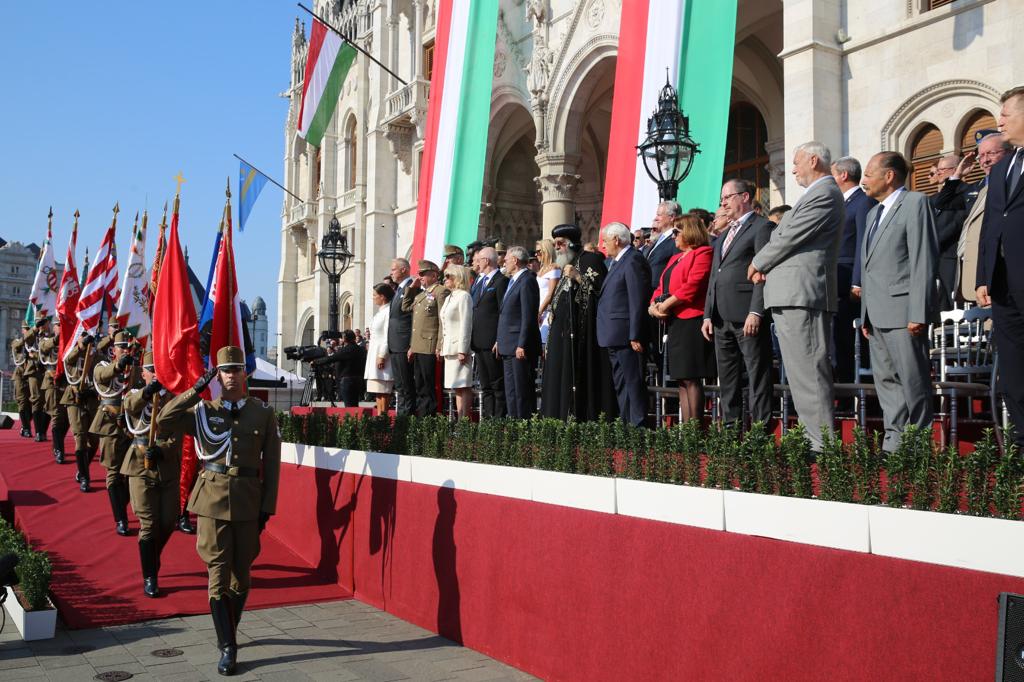
Hungary’s State Foundation Day is the oldest national day in Hungary; its origin goes back to the first king and State founder of Hungary, St Stephen (975 – 1038), who transformed the country into a European Christian one. On 20 August 1092, King Ladislaus declared the day sacred, and proposed the canonisation of King Stephen. Open celebration of the day was suppressed during the medieval Ottoman occupation of Hungary, but was reintroduced by Maria Theresa in the 18th century, and was restored to its current status following the collapse of the Eastern Bloc in 1989.
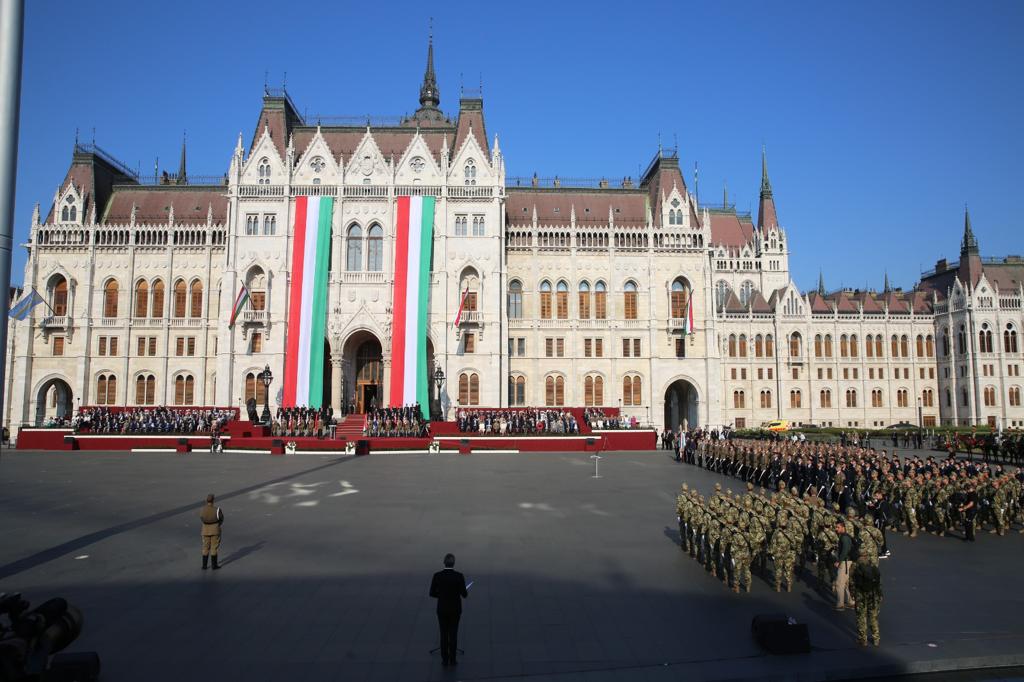
Modern official celebrations begin with the ceremonial hoisting of the national flag in Kossuth Square in Budapest where the Parliament building stands, followed by the carving of the Cake of Hungary and handing State awards to distinguished citizens. A procession is held in honour of the Holy Right Hand (the mummified right hand of St Stephen), and spectacular fireworks are shot after sunset on the banks of the Danube.
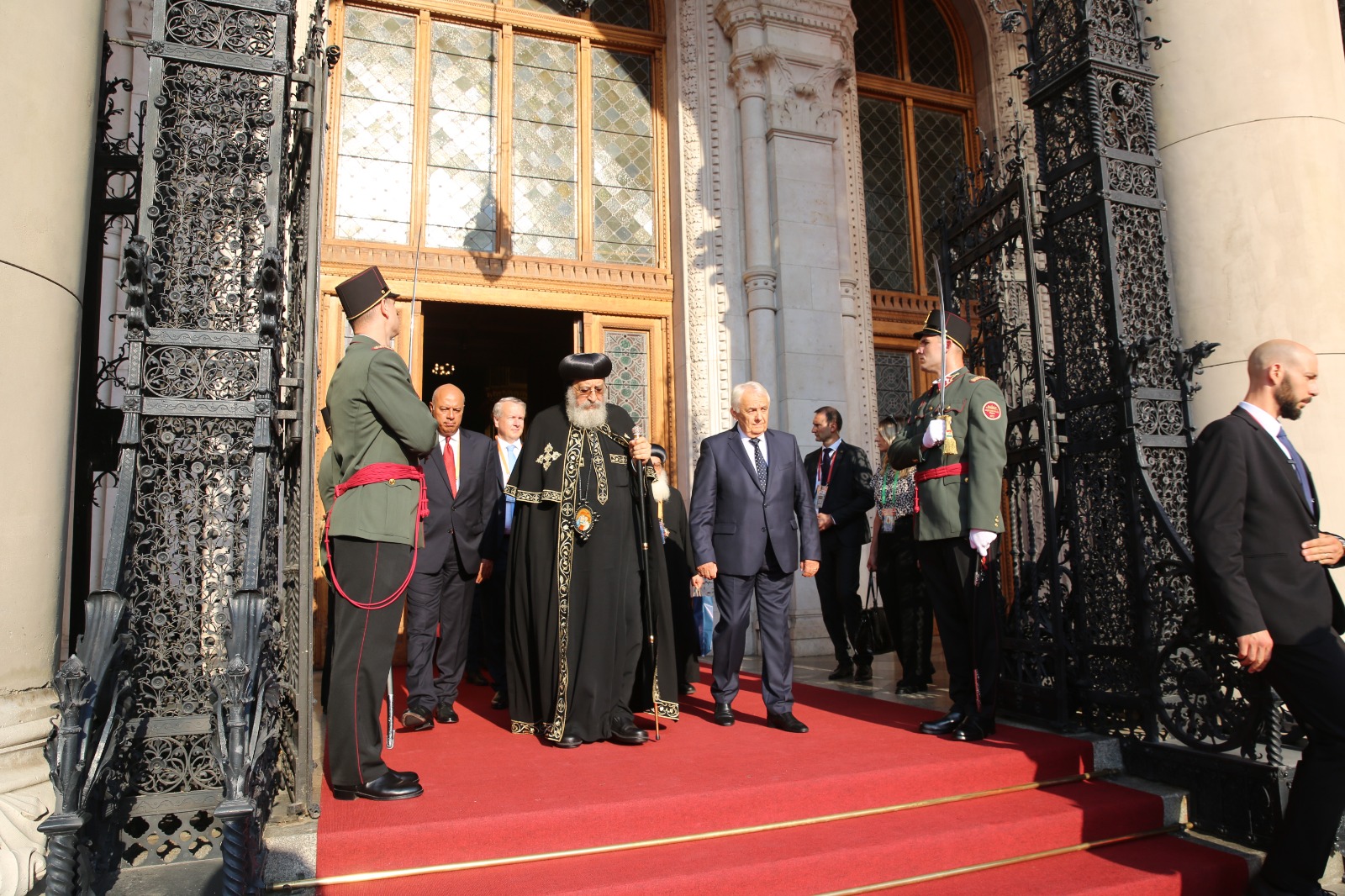
Mass…and House of Parliament
Pope Tawadros II and the delegation accompanying him attended the evening festive mass held on Sunday 20 August by the Hungarian Church in St Stephen’s Basilica in Budapest.
Cardinal Peter Erdo, Archbishop of the Catholic Church in Hungary presided, while Vatican Ambassador to Budapest, Monsignor Michael Wallace Banach, the bishops of the Hungarian Church and thousands of Hungarians participated.
The Pope paid a visit to the House of the Hungarian Parliament, accompanied by Chamyen Gault, Deputy Prime Minister of Hungary.

He was given a guided tour through the building which was constructed in 1904 on thousands of wooden columns to avoid damage by groundwater, and which houses many historic Hungarian archaeological artefacts. The centrepiece is a glass box displaying the crown of King Stephen I.

After the tour which lasted a full hour, dinner was held in honour of Pope Tawadros. Both he and Mr Gault gave speeches and exchanged souvenir gifts.

The Pope said he was happy with the relations between Egypt and Hungary, which go a long way back. “As a university student in Alexandria,” he reminisced, “I used to take a train which we called al-Magari because it was made in Hungary; Magari became synonymous in Egyptian slang with ‘quick and efficient’.
“We came from Egypt to participate in the celebration of Saint Stephen, a celebration of love, holiness and history. On the personal level, I celebrate the first day I entered the monastery 37 years ago; I took my vows at the [4th-century] monastery of St Bishoy in Egypt’s Western Desert.


“I believe that spiritual relationships constitute a measure of soft power … I pray that God sustains our love, for a person without love is not a human being.”
President receives Pope
Pope Tawadros was received by Katelyn Novak, President of the Republic of Hungary, at the Presidential Palace in Budapest, on Monday 21 August.
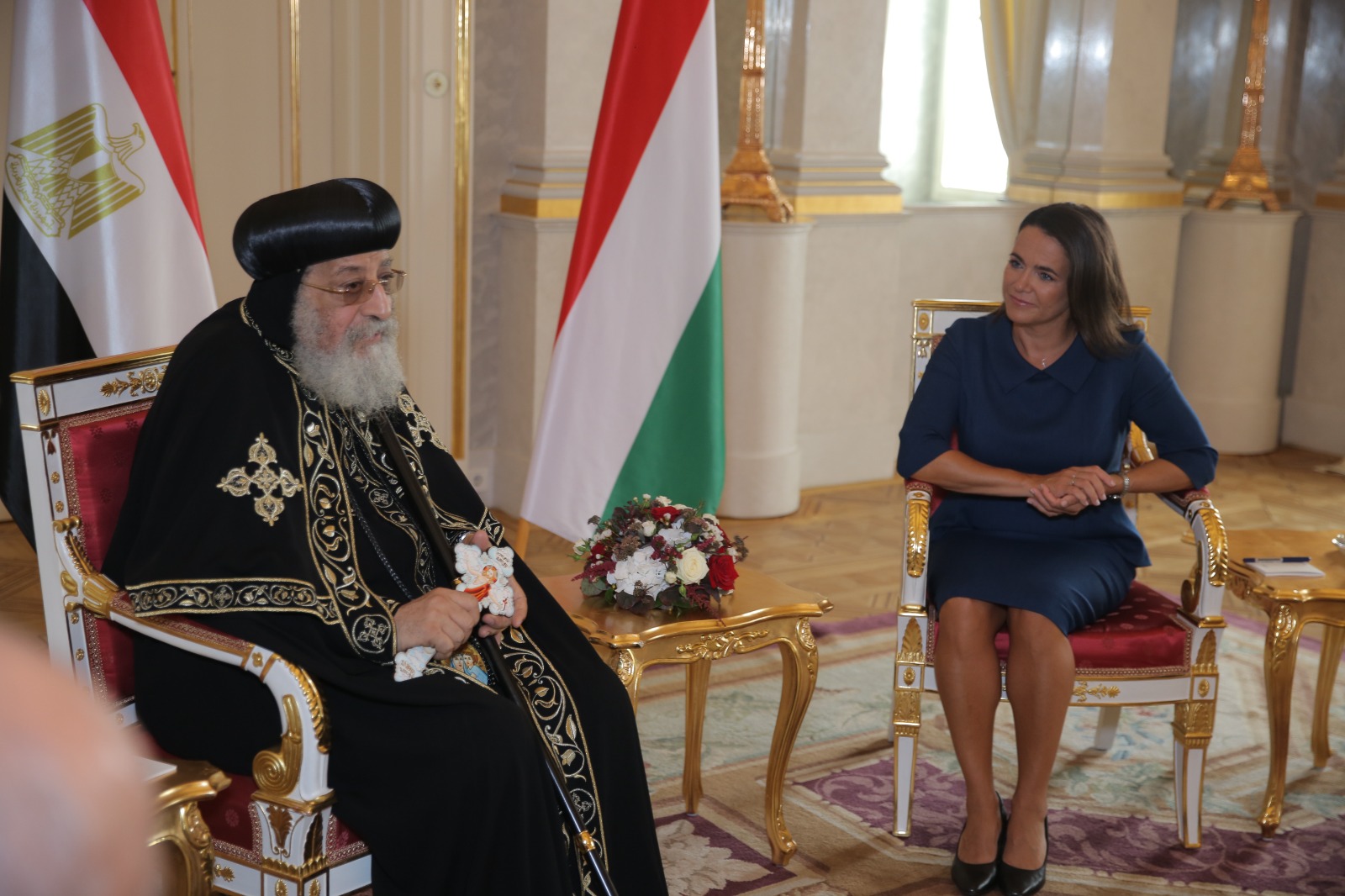
Both President and Pope expressed mutual appreciation and gratitude for the opportunity to celebrate together the Hungarian National Day. It was a visit filled with warmth and courtesy. Upon leaving, the Pope wrote a message in the register of senior visitors to the Republican Palace.
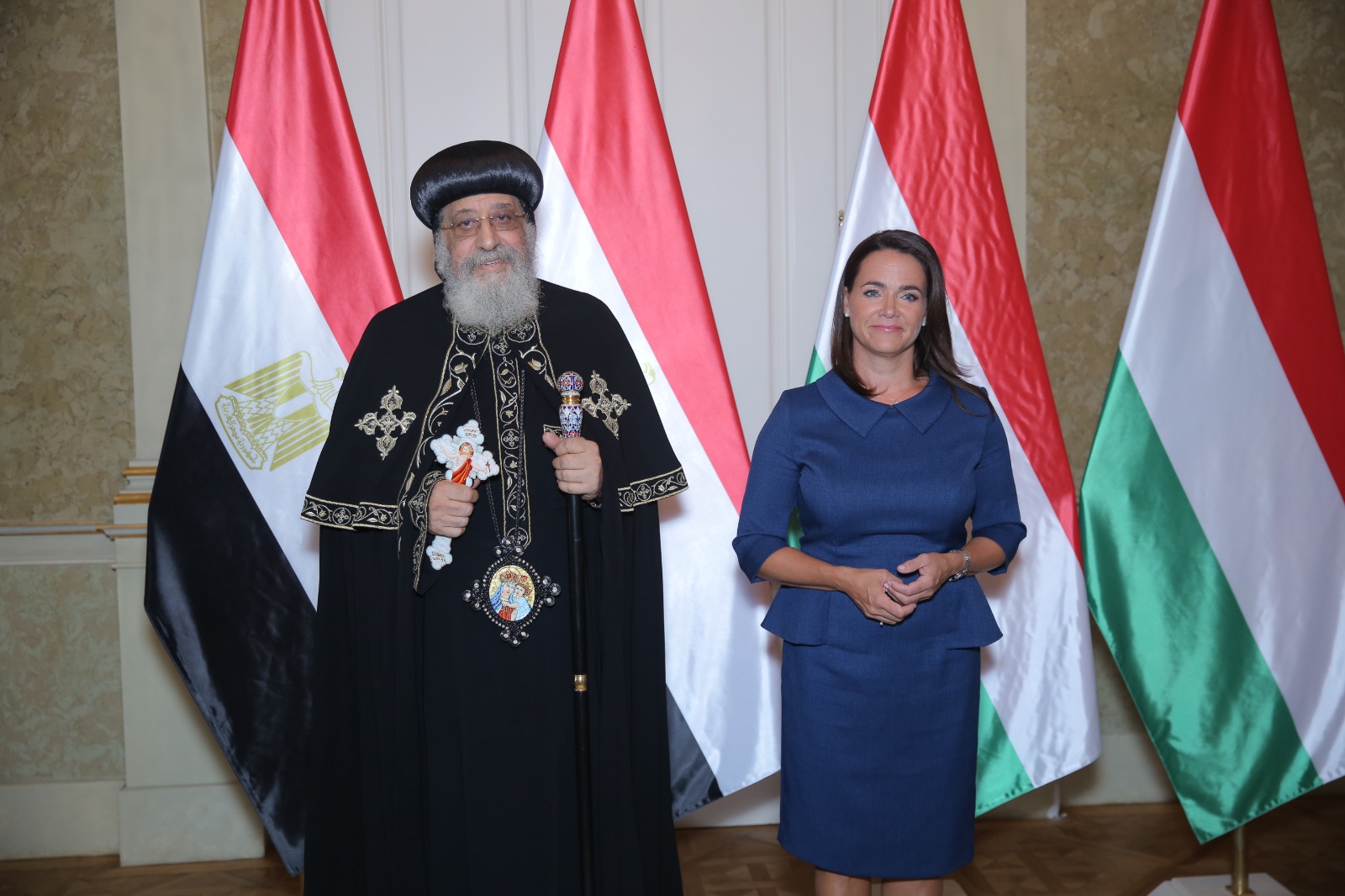
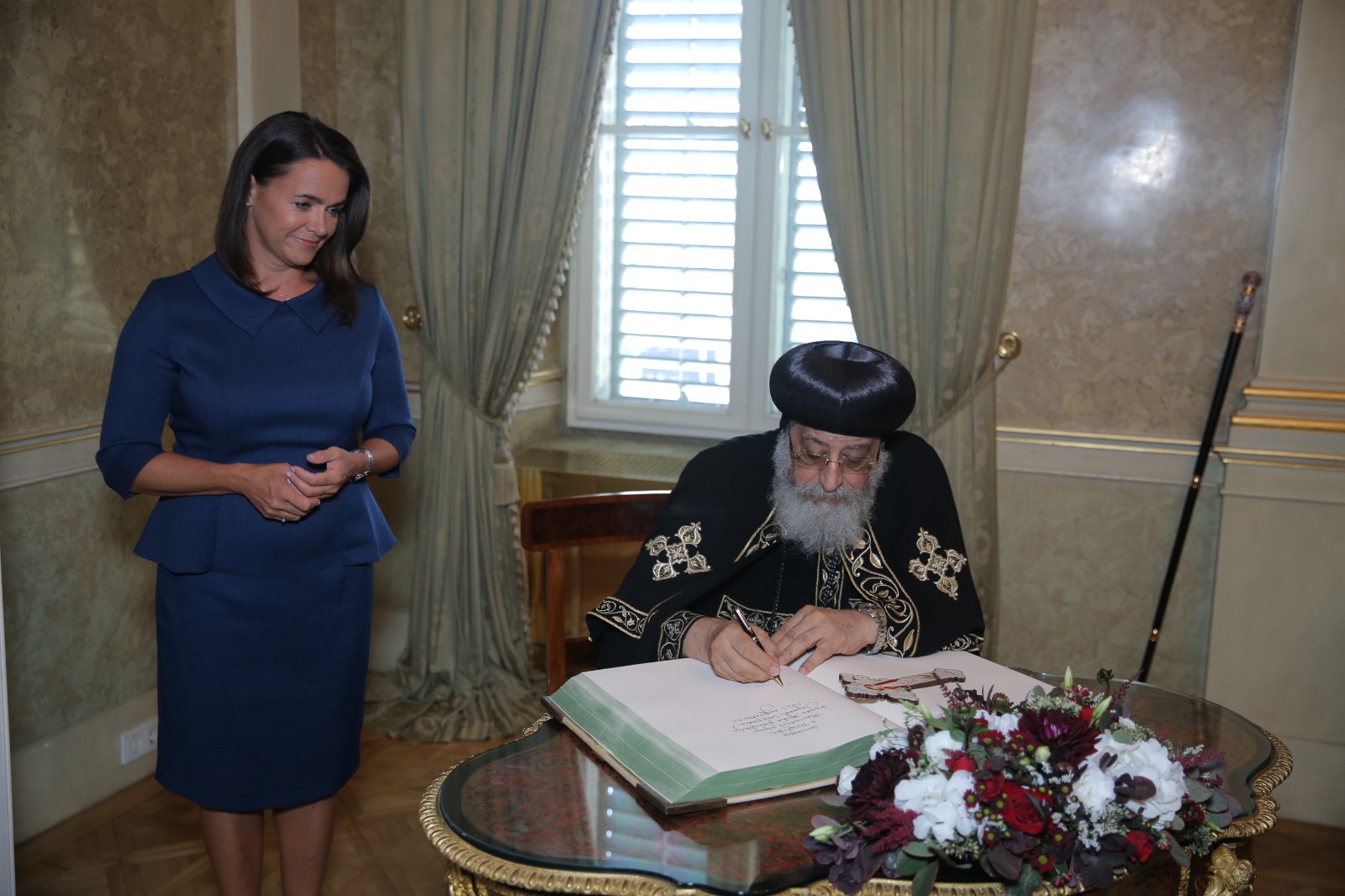
The Pope was also received by Hungarian Prime Minister Victor Orban at the premiership’s headquarters on Tuesday 22 March. Mr Orban stressed his country’s interest in opening up to the Orient, especially to Egypt in view of President Sisi’s concept of citizenship rights for all Egyptians, and the significant efforts of the country in battling illegal migration.
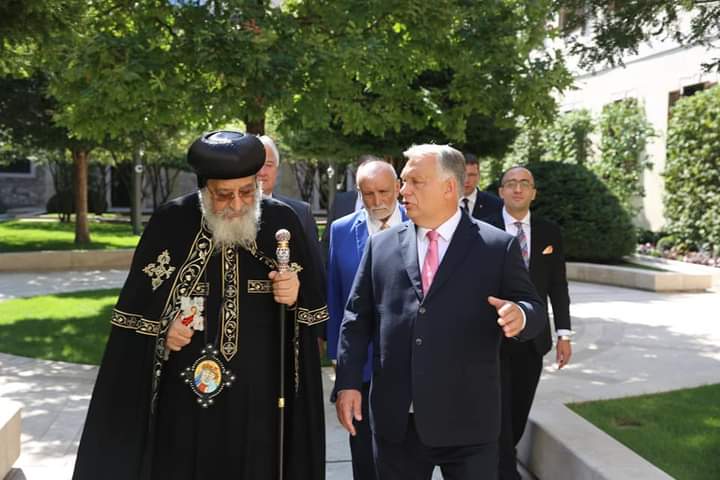
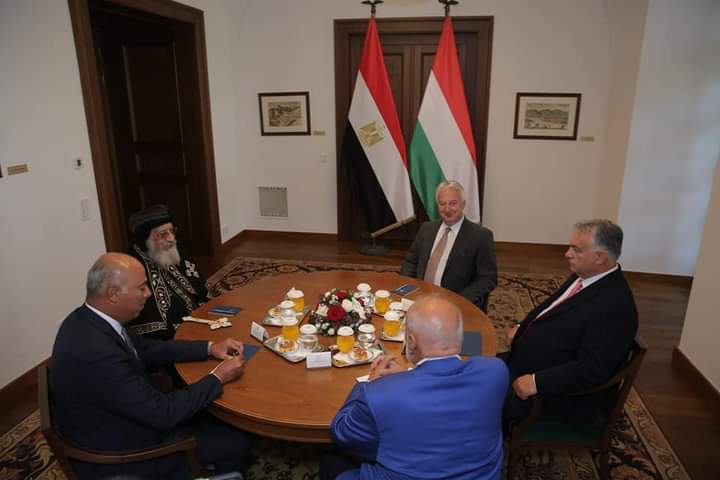
Pope Tawadros II attended a dinner held in his honour by Egypt’s Ambassador to Hungary Mohamed al-Shennawy.
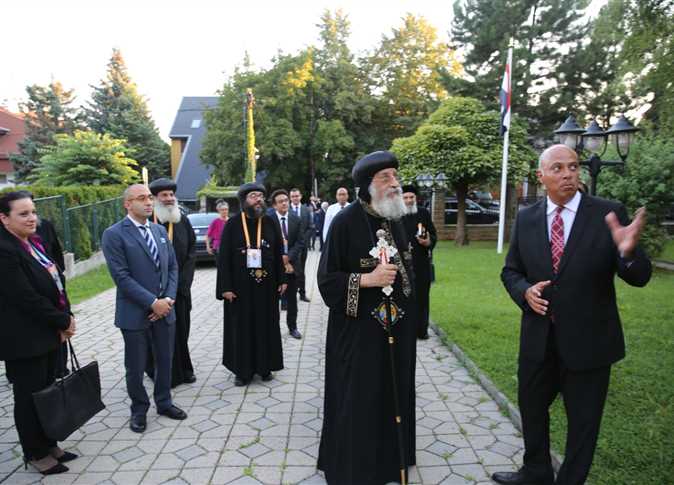
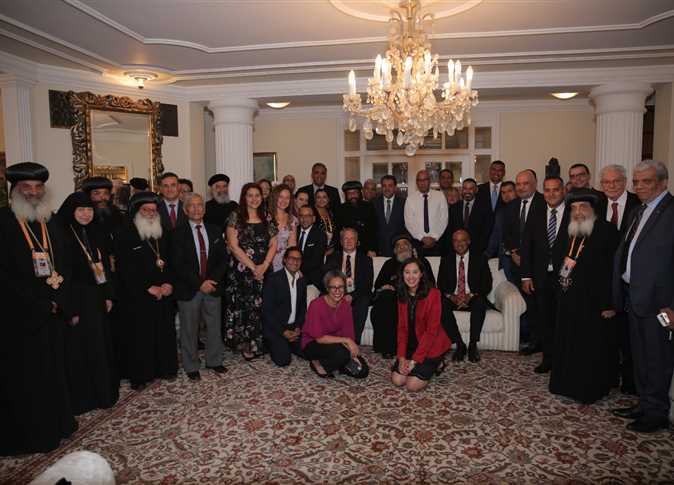
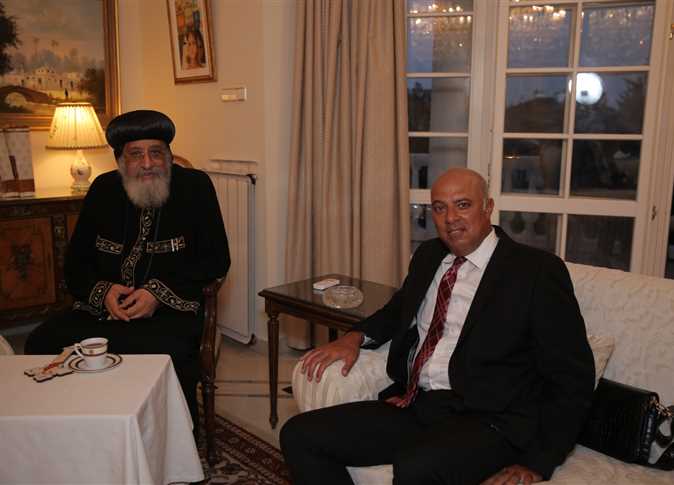
On the ecclesial front, the Pope paid a visit to Cardinal Peter Erdo, Archbishop of the Catholic Church in Hungary. He also visited the monastery of St Paul in Budapest, where he expressed his joy at being in a monastery that bore the name of an Egyptian saint, and presented the monastery with an icon of St Anthony and St Paul the Hermit.
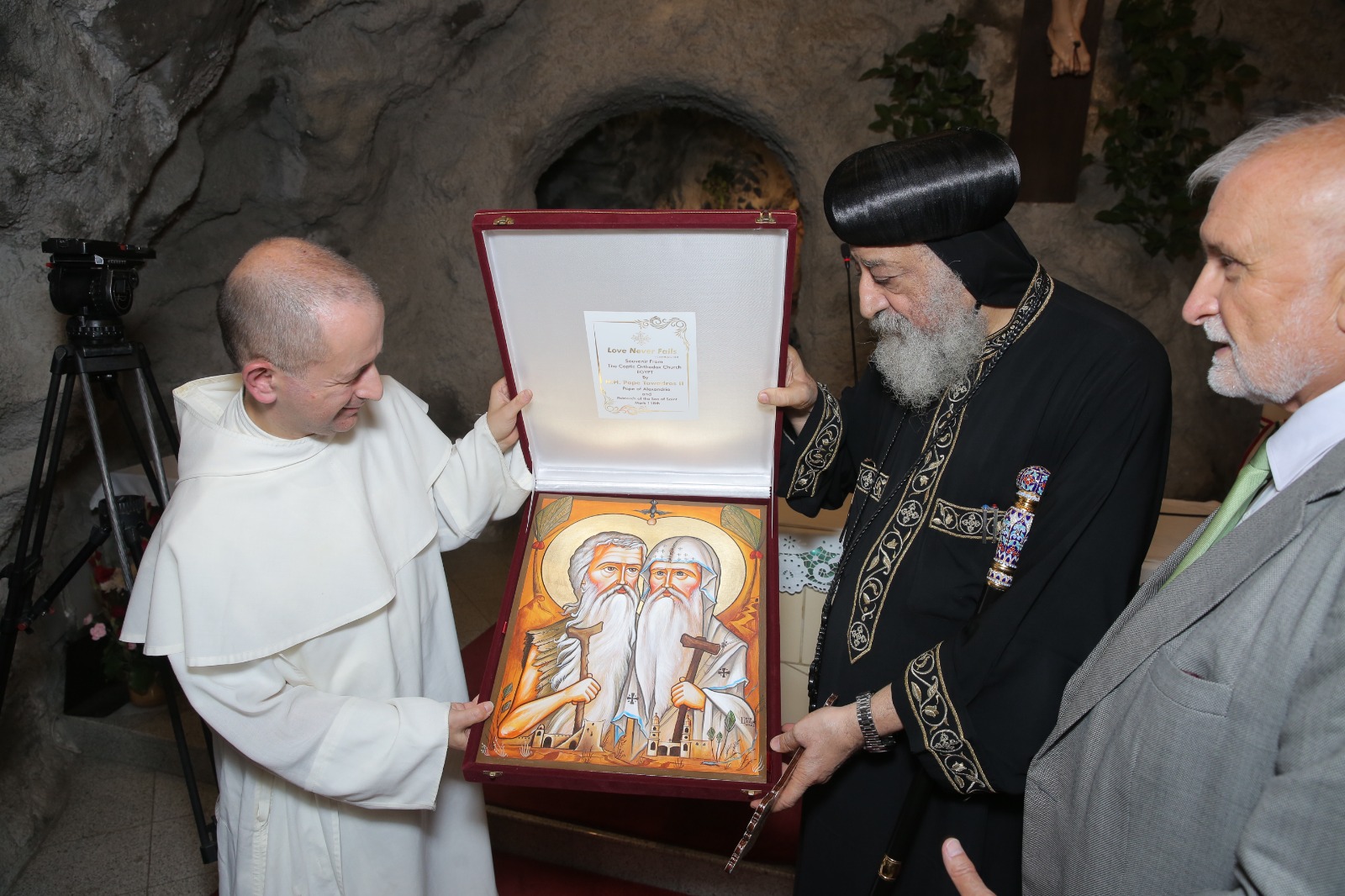
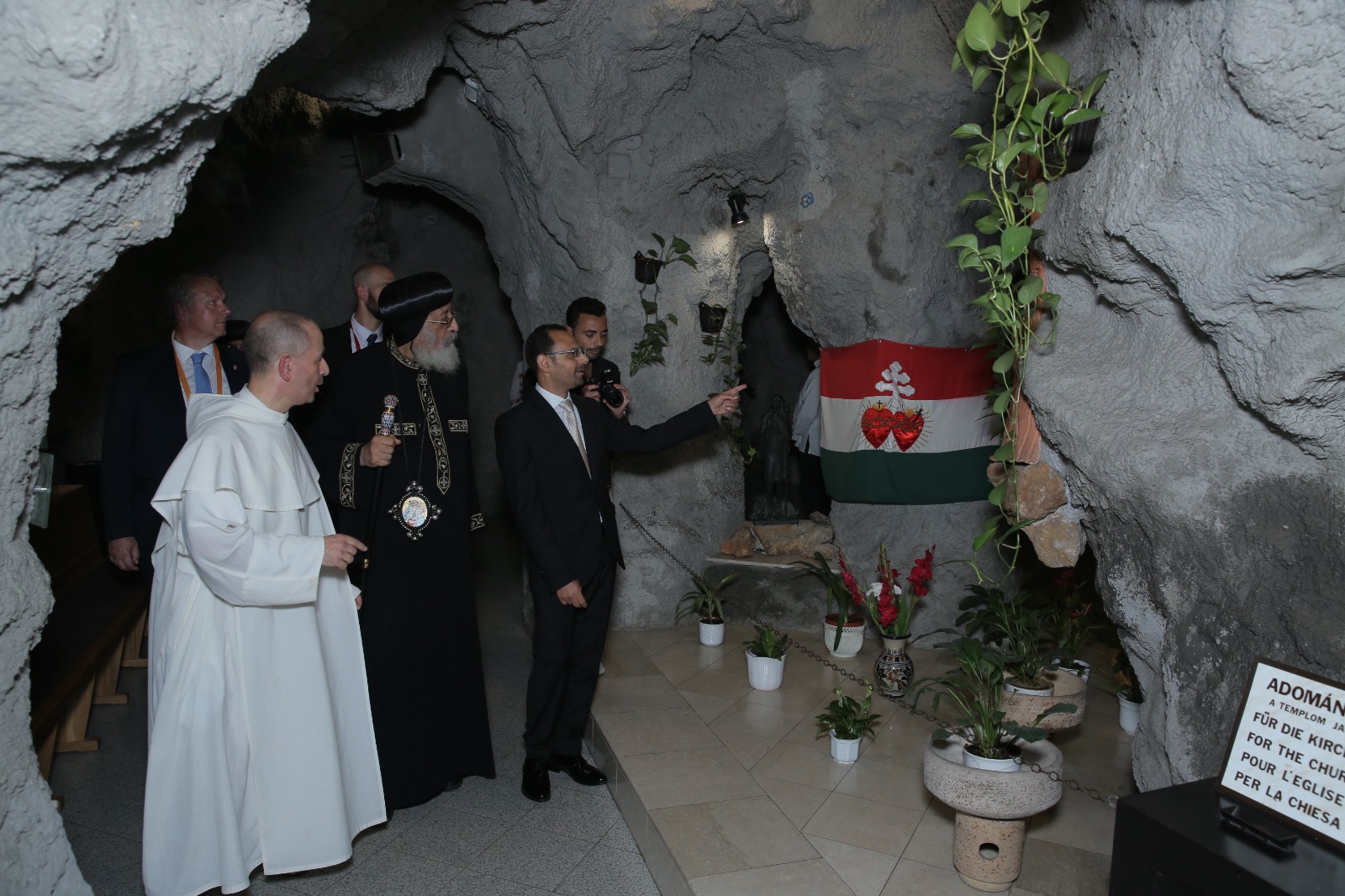
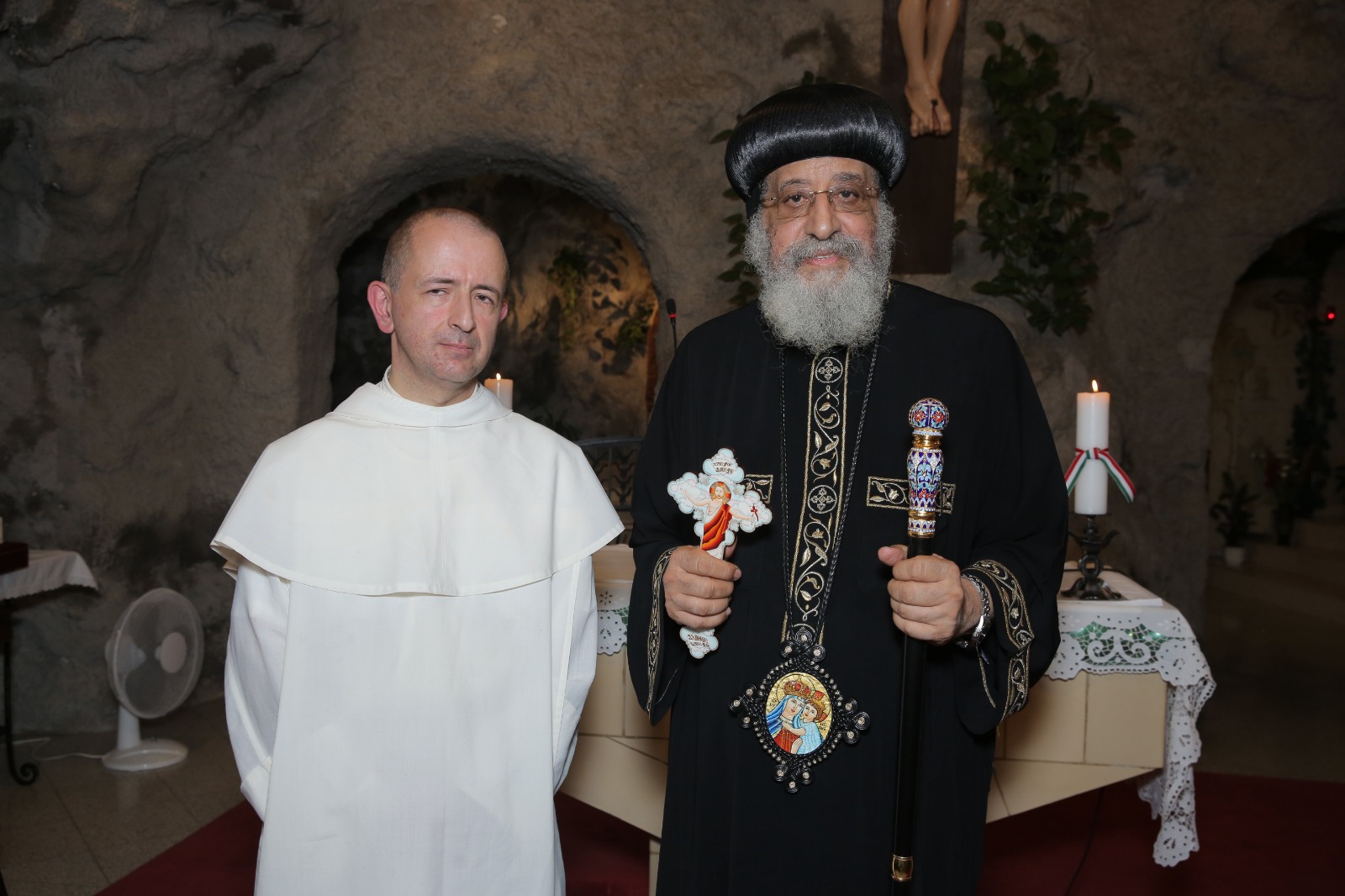
Honorary doctorate
Monday 21 August saw Pope Tawadros awarded an honorary doctorate degree from the Catholic University of Pàzmàny Pèter, at the university’s headquarters in Budapest.
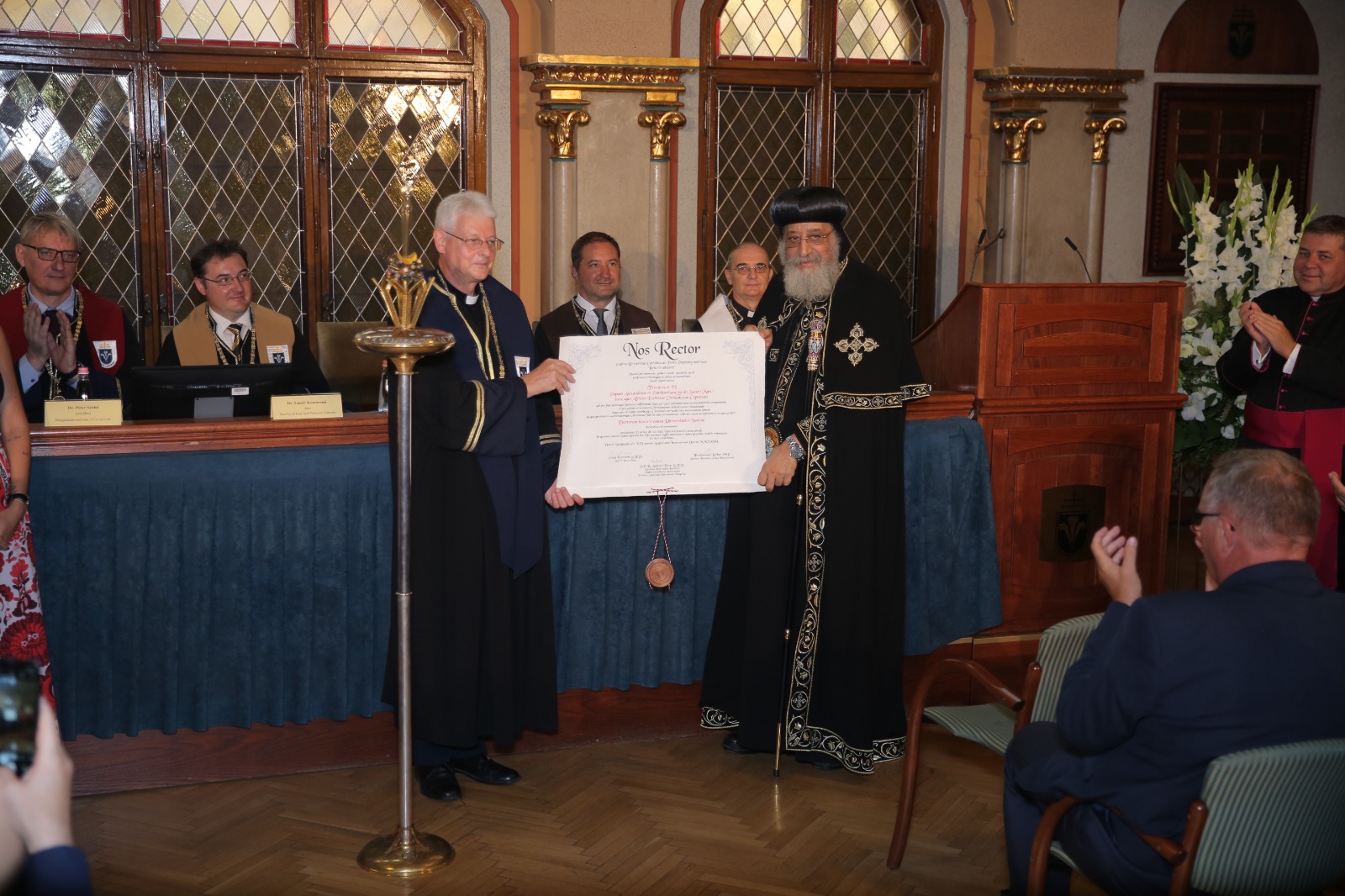
The University was founded by Cardinal Pèter Pàzmàn in 1635; today some 8,000 students are enrolled in it.
Professor Toshka Laszlo, Professor of Arabic Language at the University of Budapest, delivered the university’s speech, during which he spoke about the life journey of Pope Tawadros II from birth till today. He referred to the political events Egypt underwent since 2011, focusing on the events of the 30 June 2013 Revolution [which rid Egypt of the post-Arab Spring Islamist rule], and the subsequent meeting on 3 July 2013 [in which a roadmap was drawn for Egypt to achieve civil State]; the Pope participated in this meeting alongside army leaders, Sheikh al-Azhar and intellectuals.
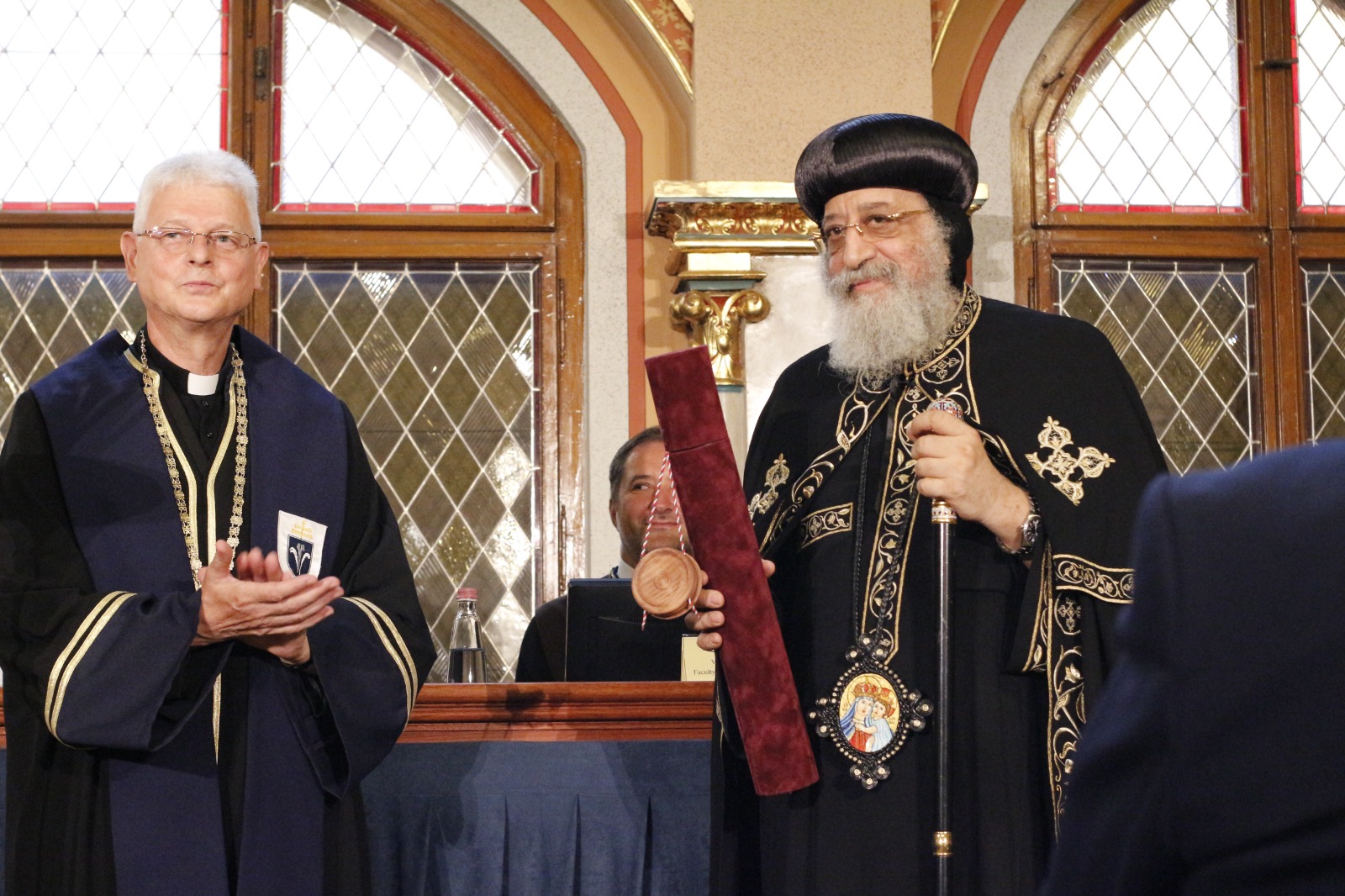
The Professor addressed the sacrifices made by the Pope and the Coptic Orthodox Church over the years, then summarised the text granting Pope Tawadros the honorary doctorate: “Through his work in Christian education and social development, he took responsibility for the service of all humanity. Therefore, as we are aware with pleasure and gratitude of the impact of this work on the Egyptian Coptic Orthodox Church, we consider it an honour for us to celebrate the Pope of Alexandria and the Patriarch of the See of St Mark, and we are honoured to accept Pope Tawadros II among the doctor honoraries of Pàzmàny Pèter University”.
Pope Tawadros II is the fourth pope to be granted an honorary doctorate by the university; the other popes were Patriarch Bartholomew I of Constantinople, Maronite Patriarch Bechara al Raie, and Coptic Pope Shenouda III (patriarch in 1971 – 2012).
Education and development
Pope Tawadros gave a speech in which he expressed deep gratitude and pleasure “to be in this beautiful country and to meet a group of distinguished academics, researchers, and guests.
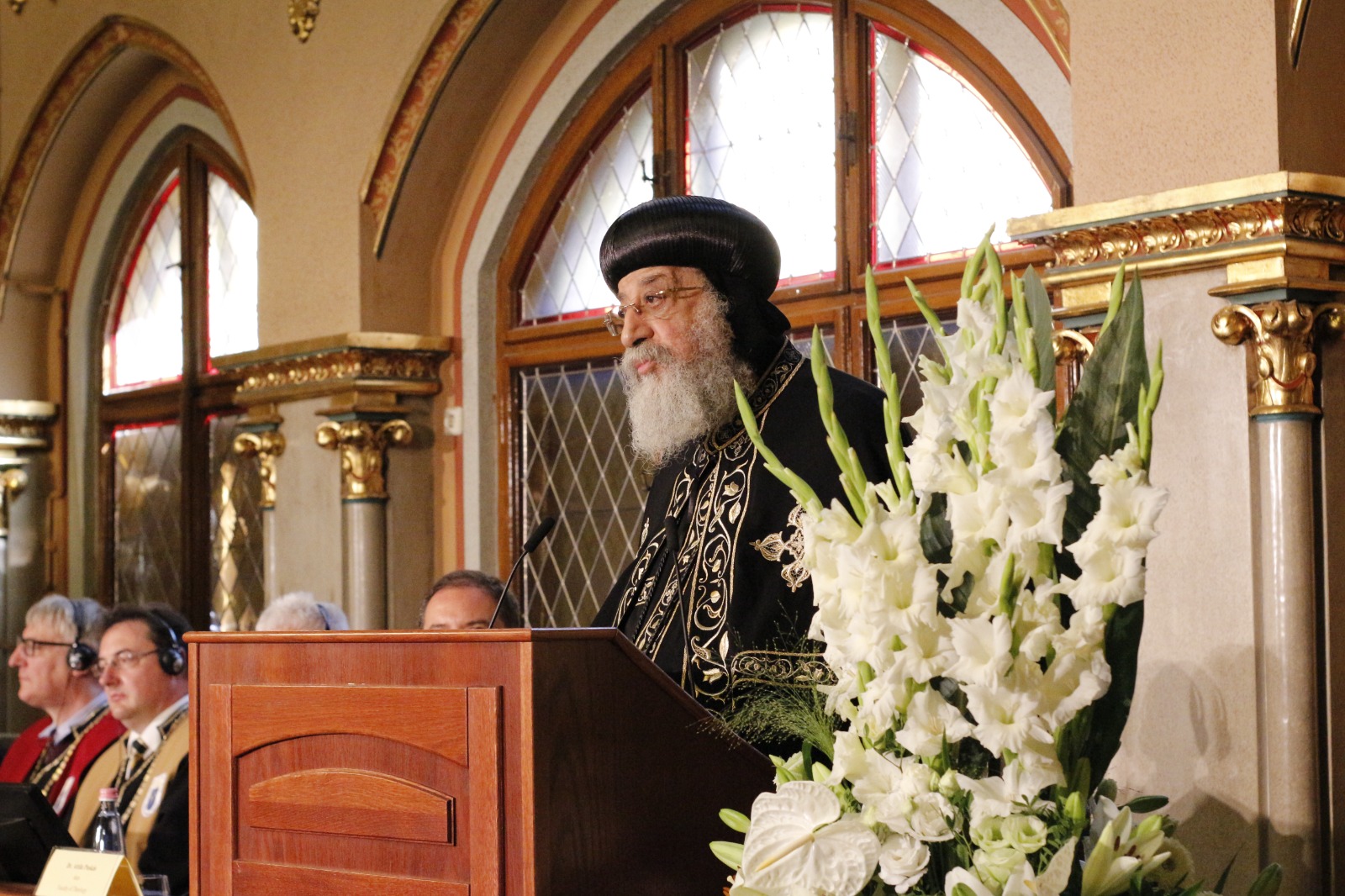
“I am proud to receive this honorary doctorate from an ancient and prestigious university with a long history in scholarship, science, theology, law, and humanities.
“I reflect on my undergraduate years at the Faculty of Pharmacy, Alexandria University, where our professors instilled in us not only knowledge but also hope, optimism, and a passion for learning.
“The same dedication to education exists in our Coptic Orthodox Church which firmly believes that education and development form the two pillars that allow it to go on from one generation to another. The Church, jointly with the Egyptian State, has played a pivotal role in establishing numerous public schools. It also contributes to spiritual education via theological colleges and Sunday schools.
“Development is intended for the betterment of society and is facilitated by our Church through its dedicated servants in pastoral care, spiritual and social development, translation services, libraries, schools, hospitals, student accommodations, refugee assistance, displaced persons’ services, and various publishing platforms, both print and digital.
“St Francis of Assisi said, ‘Lord, make me an instrument of your peace. Where there is hatred, let me sow love, where there is injustice, let me bring justice, where there is doubt, let me instil faith, where there is despair, let me kindle hope, where there is darkness, let me be light’.”
Love of Creator and creation
“Through education and development,” the Pope continued, “we present love, which allows us to touch the heart of every individual because it is the pinnacle of all virtues. I would like to elaborate on the concept of love in Christian education for societal development. To illustrate, I will use the five fingers of a hand as a metaphor due to their diversity, cooperation, and integration, and their ubiquity in our daily lives:
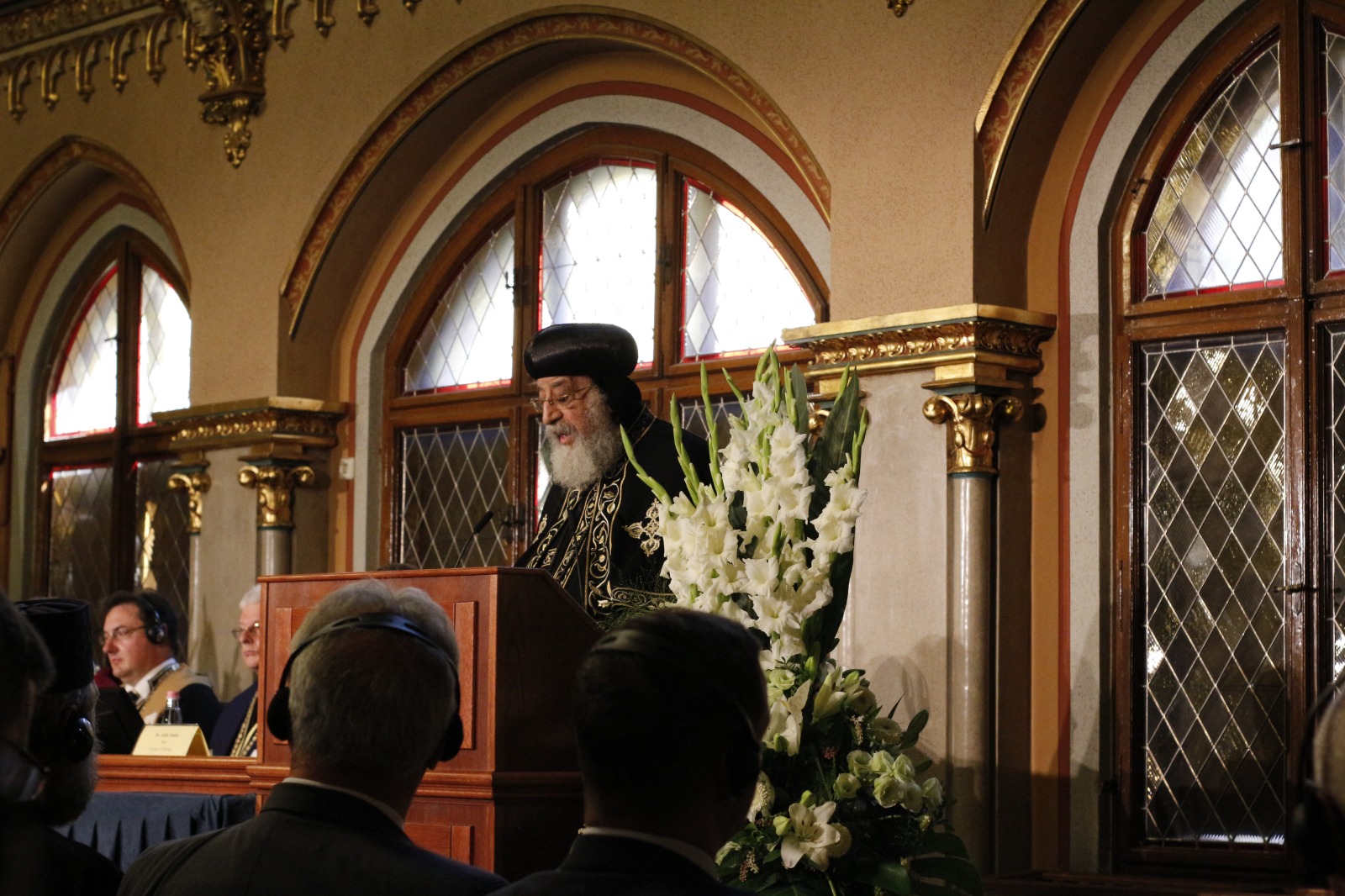
“First, the love for God the Creator.
“Saint Anthony of Egypt, the founder of monasticism, said, ‘Wherever you go, let God be before your eyes’. The first commandment in the Bible is, ‘Love the Lord your God with all your heart.’ This comes through deeper understanding of God, who loved us first. In His love, the churches engage with ecumenical and international bodies, such as the World Council of Churches, the Middle East Council of Churches, and the Council of Churches in Egypt. Through dialogue, ‘they all may be one, as You, Father, are in Me, and I in You; that they also may be one in Us, that the world may believe that You sent Me.’ (John 17:21).
“Secondly, the love of nature in its entirety
“‘In the beginning, God created the heavens and the earth’ (Genesis 1:1). He created mankind and vested them with the responsibility of tending and conserving nature. However, our world is now encountering challenges such as climate change, global warming, water scarcity, desertification, and drought, all matters of concern for international and humanitarian organisations.
“In this context, I commend your country’s commitment to renewable energy resources, such as solar and wind power, and its initiatives in waste management, biotransformation, sustainable agricultural programmes, and the preservation of forests and water resources. Your country also places great emphasis on education and science, making it accessible to students worldwide. In this vein, I wish to express my gratitude for the scholarships offered to Egyptian students, which allow them to understand, manage and study with discernment, awareness, and knowledge.”
”We have chosen love”
“Thirdly, the Pope said,” is the love for fellow humans.
“The world, steeped in materialism, is yearning for genuine love, unable to find a source of love to satisfy it. This is a need I underscored in my meeting with Pope Francis during his address in St Peter’s Square last May. ‘We have chosen love even if we are going against the current of a greedy and selfish world. We have accepted the challenge of love that Christ asks of us. We will be true Christians’. This is our message. Thus, we commemorate the day of fraternal love with the Catholic Church every 10th of May.
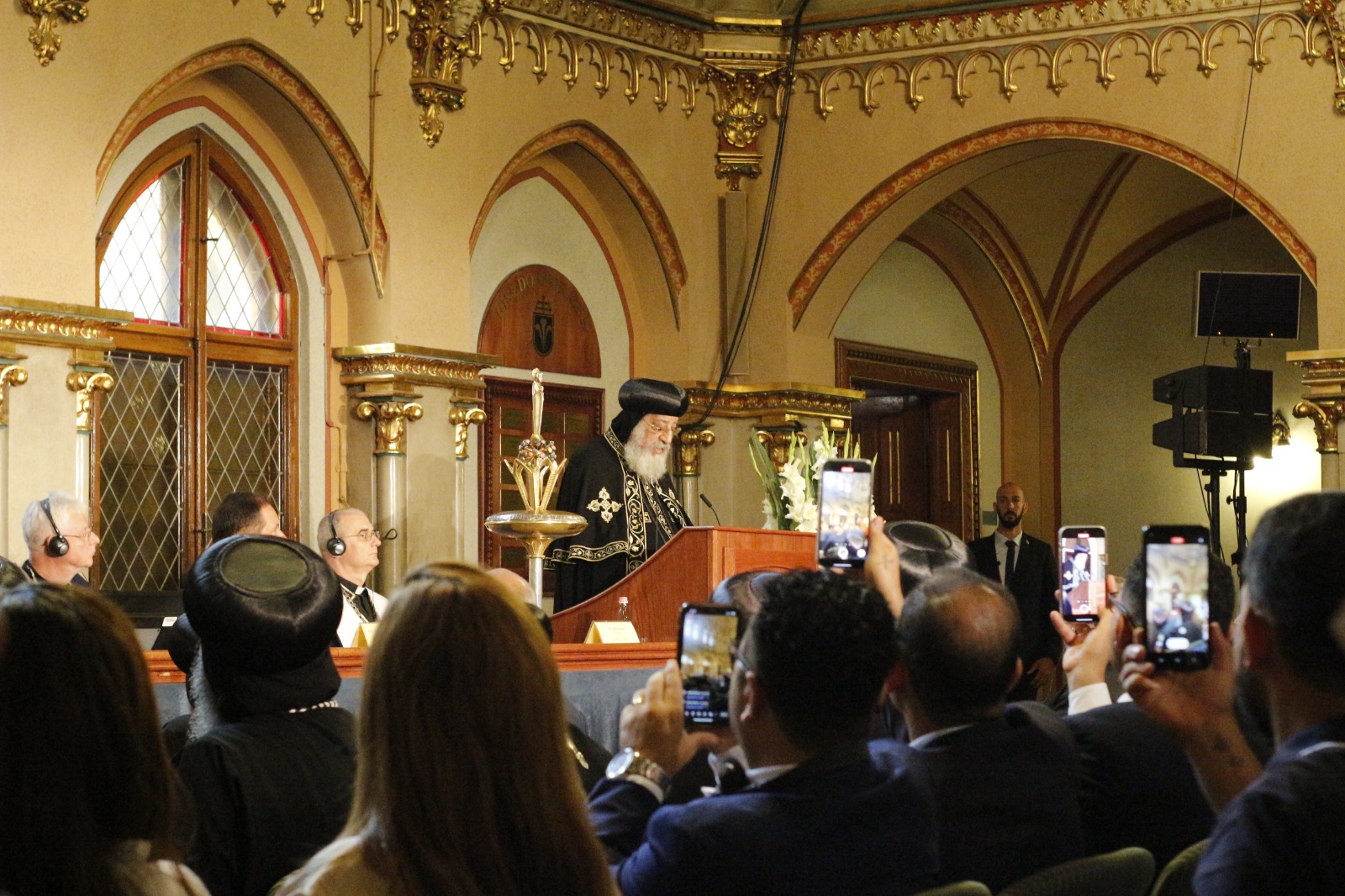
“In Egypt, we live harmoniously and lovingly with our Muslim brothers, who constitute the majority, we respect each other and collaborate in building, developing, and serving every human.
“In a world suffering wars, conflicts, violence, and terrorism, which have caused an upsurge in refugees, displaced people, and the homeless, our responsibility towards humanity has heightened. The Bible tells us to ‘uphold the weak’ (1 Thessalonians 5:14 ).
“Fourth, the love of one’s homeland.
“The Bible says, ‘Blessed is Egypt My people’ (Isaiah 19:25). Over 2000 years ago, Egypt was blessed with the visit of the Holy Family. Today, Egypt is home to some of the world’s oldest churches and monasteries, including the Hanging Church, constructed in the fourth century. As well as the Cathedral of the Nativity, the largest cathedral in the Middle East, which was inaugurated in 2019 in our new administrative capital, designed to be a pioneering smart city. Simultaneously, we are building the Grand Egyptian Museum, destined to be the largest museum showcasing ancient Egyptian civilisation. I invite you all to visit once it opens in the forthcoming months.”
Light of the world
“Fifth, the love of Heaven and Eternity
While we strive to build and serve each other on Earth, our hearts and aspirations always reach out towards Heaven, ‘He will dwell with them’ (Revelation 21:3). We ought to follow the divine commandments that uphold the value of humankind and family as God intended.
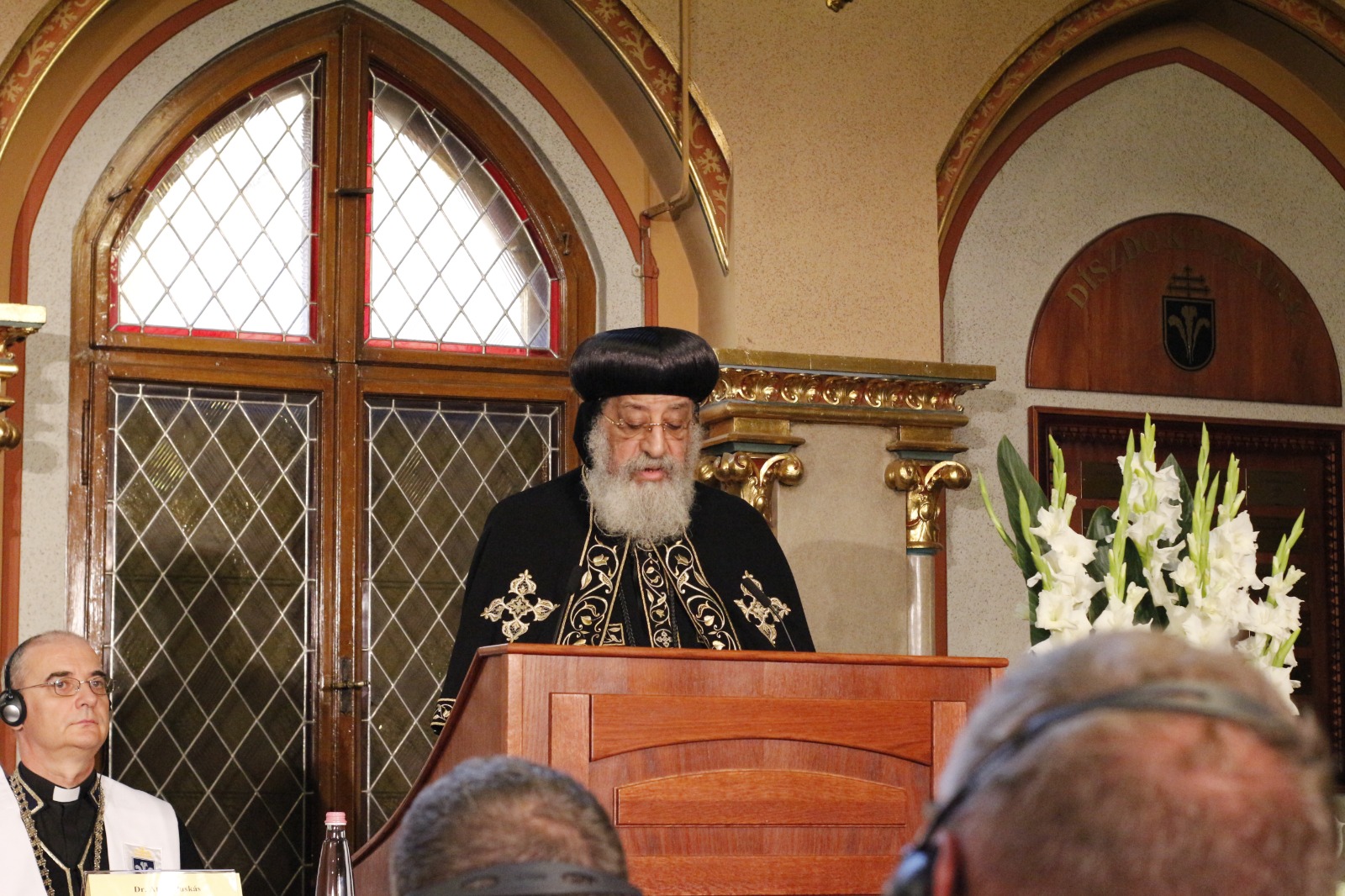
“Here, I confirm Viktor Orbán’s statement, ‘We must build a wall around our children to protect them from targeted sexual ideology. A mother is a woman, and a father is a man. Leave our children alone.’
“We should collectively resist human frailties by taking firm stances against moral challenges that defile human nature as created by God.
“Our prime mission is to be a light to the world … salt to the earth.”
Watani International
23 August 2023















